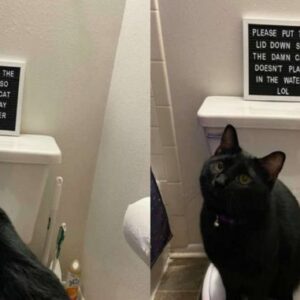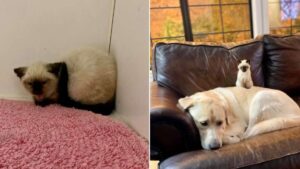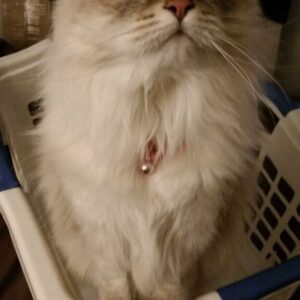
Georgi Anderson, Frankie’s human, recounts, “He was born beneath a suburban home to a wild mother.” “He was discovered with one live sister, although there may have been more who died.”
Frankie and his sibling were taken in by the homeowners for many weeks to socialize and fatten them up before being taken to the shelter for medical care and rehoming.”
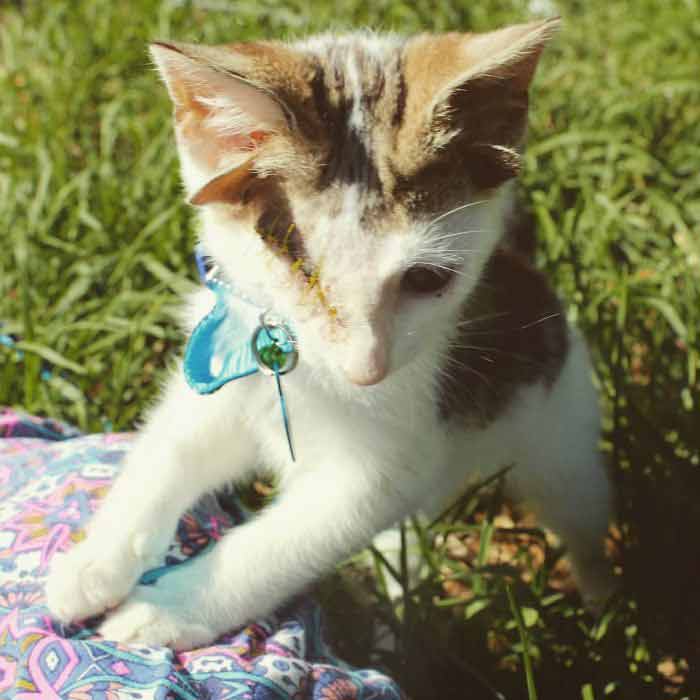
Of course, people notice his four ears first, but he also has a big overbite that gives his face an angular aspect. He had two eyes when he originally came to the animal shelter, but one of them had burst and had to be removed.
Frankie also has issues with his rear legs, as his knees do not sit properly, causing him to walk splay-legged as his knees slide in and out of position.
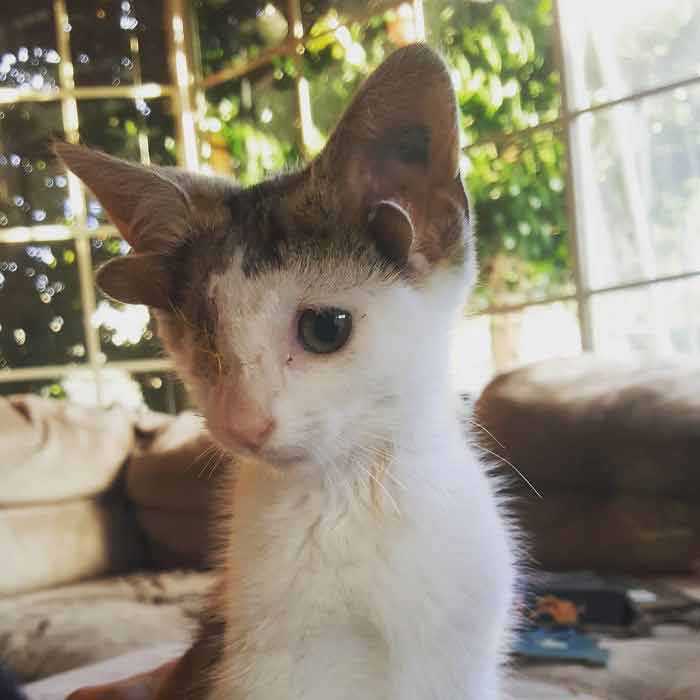
“His bottom canines were piercing the roof of his mouth due to his overbite. He also needs surgery on his knees to fix the joints, but I’m saving up for that since it’s pretty costly,” Georgi explained.
“He also had dental treatment done to reduce the height of his lower canines to a few millimeters over the gum line.”
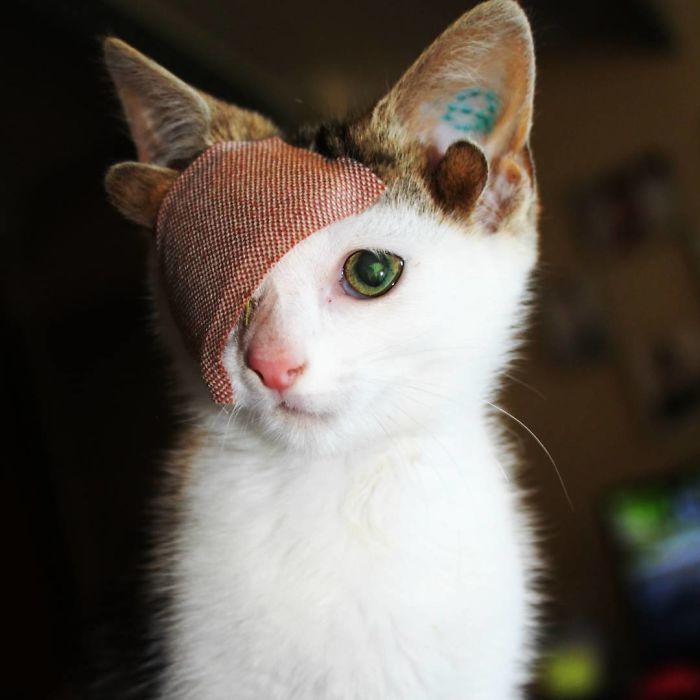
“The eye removal saved his life since the infection would have progressed to the point where he would have died.” 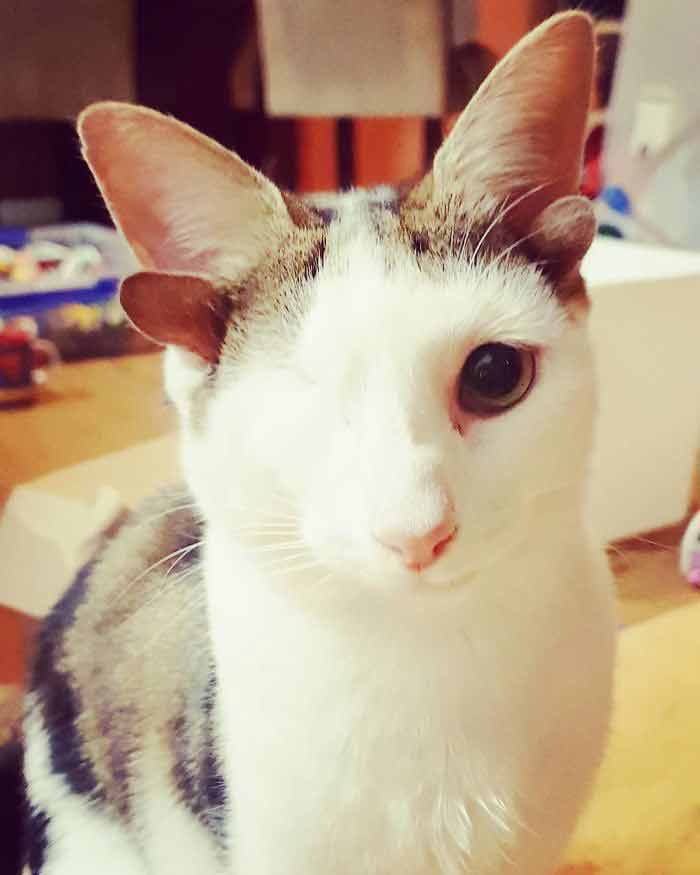
“I was working at the animal shelter when Frankie arrived. I was invited to foster him for a week while he recovered from his eye removal because I was also a foster caregiver.” 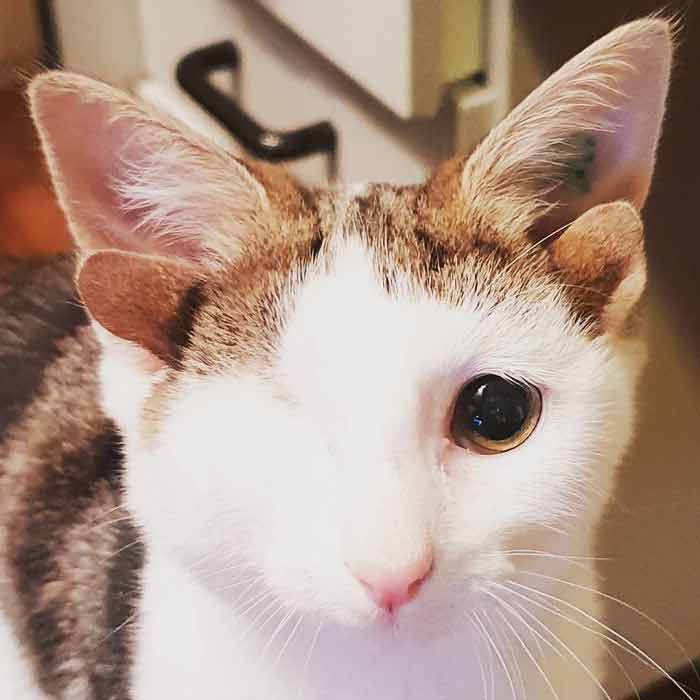
“It wasn’t so much his distinct appearance that drew me in as it was his charming personality, the way he investigated his environment and sought solace from me. I went to see him before his treatment and was immediately impressed by how kind he was.”
“I felt he was unique in a manner I couldn’t fully articulate within a few hours of having him home in recovery.”
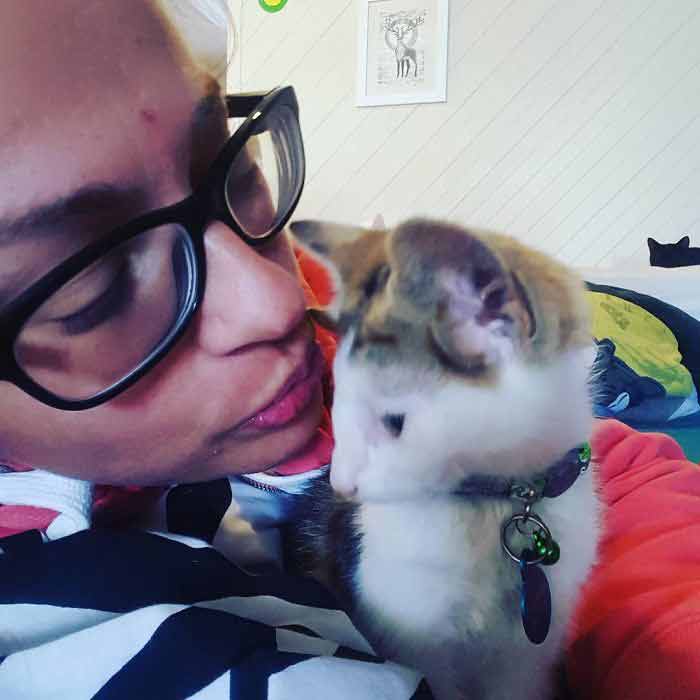
“His physical state has an influence on his day-to-day activities. The little front ears have a minor effect on his directional hearing since they function almost like earmuffs to his regular ears. He’s adapted well to having only one eye, although his night vision isn’t as excellent as my other cats’. His legs cause him to walk splay-legged, but they don’t hurt him or limit his ability to play or leap.” 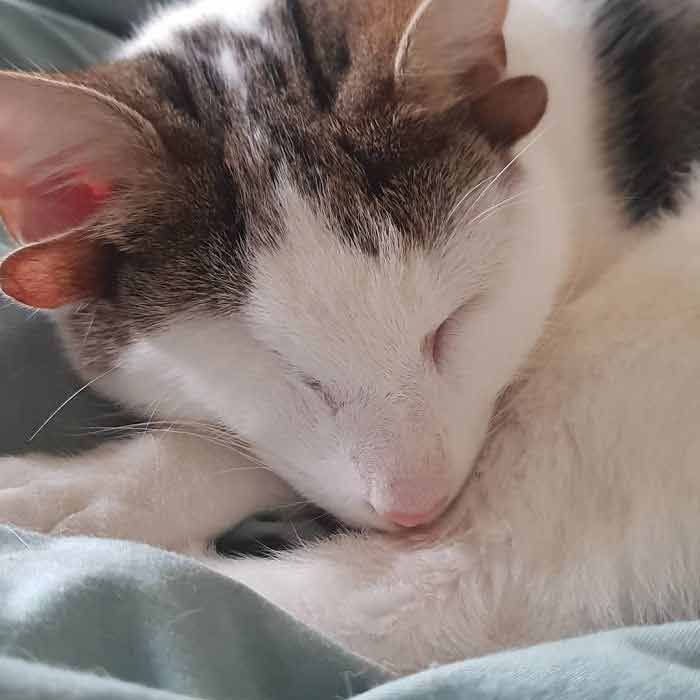 “The largest physical reason is definitely his mouth; he has trouble eating wet food because he can’t get a firm grip on it.” He’s on a dry-food-only diet and has learned to pick up kibble with his tongue and bring it into his mouth that way rather than putting it in his mouth.
“The largest physical reason is definitely his mouth; he has trouble eating wet food because he can’t get a firm grip on it.” He’s on a dry-food-only diet and has learned to pick up kibble with his tongue and bring it into his mouth that way rather than putting it in his mouth.
